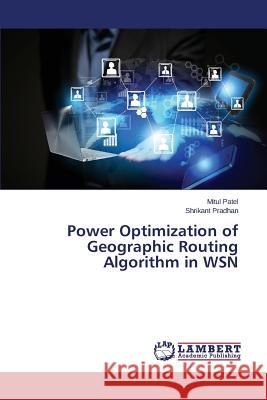Power Optimization of Geographic Routing Algorithm in WSN » książka
Power Optimization of Geographic Routing Algorithm in WSN
ISBN-13: 9783659608841 / Angielski / Miękka / 2014 / 72 str.
A wireless sensor Network consists of a small battery operated sensors. After successful deployment of sensor nodes, it is often unfeasible to re-charge sensor nodes or replace batteries. Another major problem in wireless sensor network is the broken connectivity between sensor nodes due to power sources that drain out of power. To overcome these major drawbacks, optimized power consumption strategies need to be developed either by doing optimization in hardware or by using efficient software techniques. Power consumption constraints in WSNs require efficient task distribution among various components of wireless sensor node (i.e. radio transceiver, sensing device and computation device). Most techniques use method that will switch of transmitter & receiver according to some strategy to save power but they do not consider power saving in the processor.
A wireless sensor Network consists of a small battery operated sensors. After successful deployment of sensor nodes, it is often unfeasible to re-charge sensor nodes or replace batteries. Another major problem in wireless sensor network is the broken connectivity between sensor nodes due to power sources that drain out of power. To overcome these major drawbacks, optimized power consumption strategies need to be developed either by doing optimization in hardware or by using efficient software techniques. Power consumption constraints in WSNs require efficient task distribution among various components of wireless sensor node (i.e. radio transceiver, sensing device and computation device). Most techniques use method that will switch of transmitter & receiver according to some strategy to save power but they do not consider power saving in the processor.











